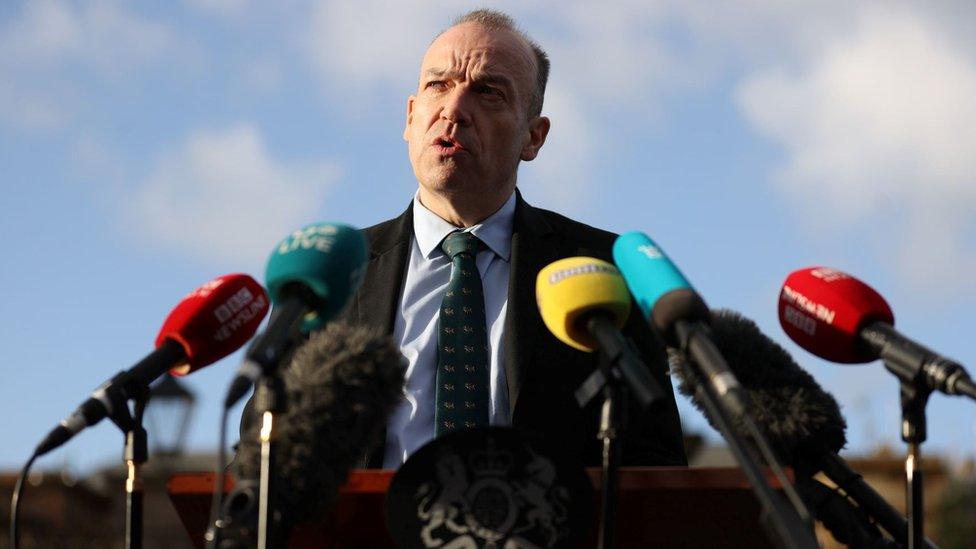Stormont: Government should raise public sector pay - DUP
- Published
- comments
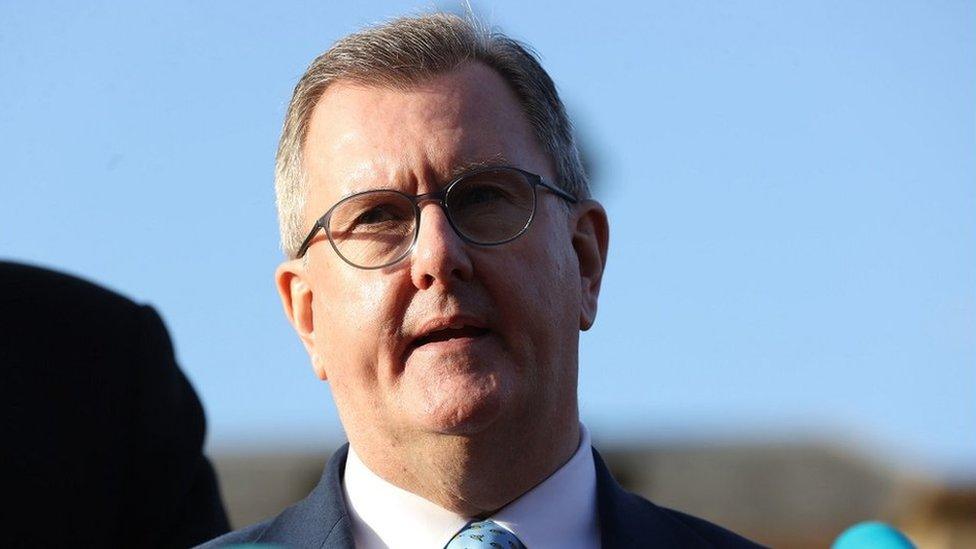
Sir Jeffrey Donaldson said a pay rise for public sector workers should go ahead
A pay rise for public sector workers should be implemented by the Northern Ireland secretary, the Democratic Unionist Party (DUP) leader has said.
At recent talks to restore Stormont, the government had offered what it called a "generous package offered" of £3bn for a new executive.
This included a provision to cover a £584m public sector pay deal.
But the talks ended with the DUP ruling out a return to Stormont before Christmas.
It collapsed the devolved institutions 22 months ago in protest against post-Brexit trade arrangements for Northern Ireland.
Recently the DUP has also called for a better financial package for incoming ministers.
Sir Jeffrey said the government's current offer was not a "sound basis" and did not include "the recurrent aspect of that public sector pay award" for next year's Stormont budget.
Speaking on Wednesday, he called for Northern Ireland Secretary Chris Heaton-Harris to increase public sector salaries.
"The secretary of state has the money and the power to deliver the public sector pay award," said Sir Jeffrey.
A spokesperson for the Northern Ireland Office (NIO) said the talks had concluded.
"It is now for the NI parties to come together, restore the executive and begin to address the challenges facing the people of Northern Ireland, including public sector pay," said the NIO statement.
Sir Jeffrey also told BBC News NI he expected further meetings to be held "shortly after Christmas", despite the government saying talks had ended.
"I'm holding out to ensure firstly we sort out the issues relating to the NI Protocol and that we get a better deal on our budget," he said.
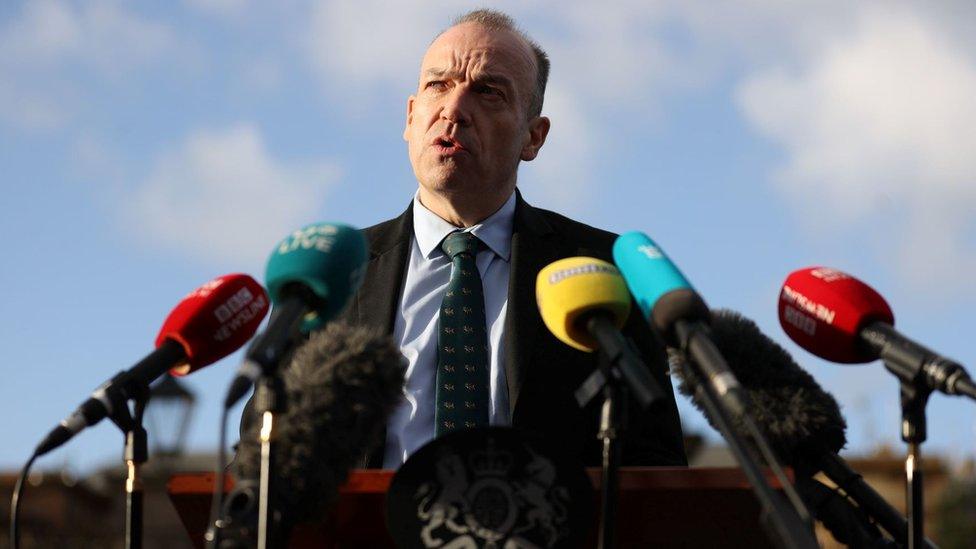
Chris Heaton-Harris 'must act now' on public sector pay, according to trade union Nipsa
Earlier in December, the prime minister said the government was ready to legislate on the post-Brexit trade arrangements, which the DUP has said has undermined Northern Ireland's place in the UK internal market.
The Northern Ireland Protocol and the Windsor Framework have introduced some new checks on goods moving between Great Britain and Northern Ireland.
Earlier, Taoiseach (Irish Prime Minister) Leo Varadkar said he did not believe a fresh Stormont election would solve anything in the impasse.
"I think the British government has worked really hard to get the DUP on board in terms of the Windsor framework and bilateral assurances, which they're willing to put in legal form, and also a financial package for Northern Ireland," he said.
"We all want any new executive to last and be successful," he said.
The political talks have been held during protests by public sector trade unions who have called for pay deals for their members.
'Everybody is struggling'
Speaking after meeting Sir Jeffrey on Wednesday, Nipsa's Carmel Gates said she did not blame the party for the lack of a pay offer and said "he's arguing for more money".
"We believe the secretary of state can give us the pay rise immediately. It's being used as leverage to try and force the DUP back in," she said.
"We're content for the money to come straight from the secretary of state into the Department of Finance's coffers.
"It's a very difficult time to be dangling this money in front of workers and then saying you're not getting it."
Earlier, Alan Perry of GMB said "I do firmly believe that the public is very much on our side" ahead of a strike planned for 18 January.
In his interview, the leader of the DUP - Stormont's second largest party - called for the Northern Ireland secretary to implement the pay awards.
"The secretary of state has the money and the power to deliver the public sector pay award," said Sir Jeffrey.
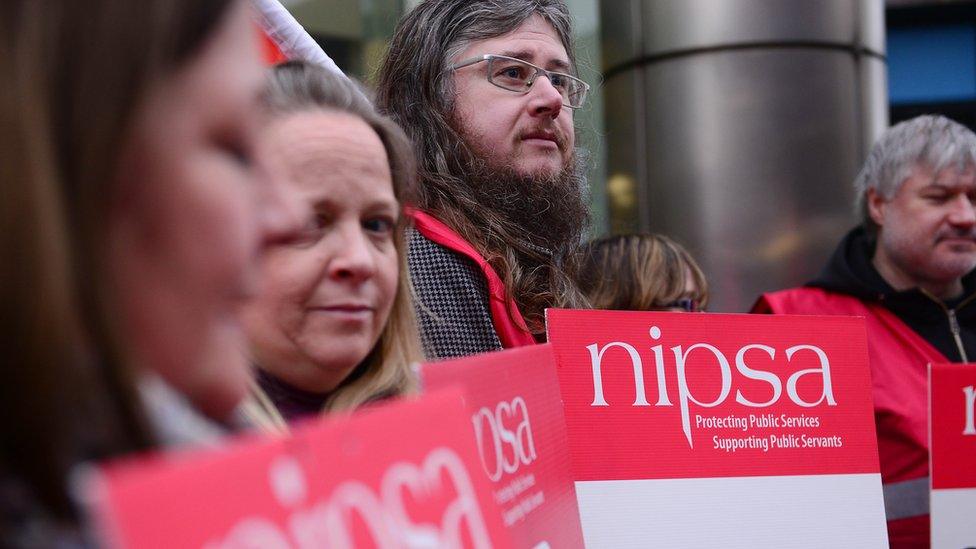
Nipsa members including civil servants will strike on 18 January
'Holding a carrot'
Irish Congress of Trade Unions (ICTU) Assistant General Secretary Gerry Murphy said unions had no option but to "intensify" their industrial action.
He said 18 January would be a "generalised day of action" that would affect "every part of public services" in Northern Ireland.
The Royal College of Midwives (RCM) announced midwives and maternity support workers are to take part in the 18 January strike.
The RCM announced a half-day strike from 08:00 GMT until 12:00, across all five of Northern Ireland's health trusts, but said care would still be provided to those who need it.
Karen Murray from the union said patience had run out.
Northern Ireland health and social care staff remain the lowest paid in the UK.
The RCM has sought to reassure patients that the strike will not impact the delivery of safe services.
- Published19 December 2023

- Published22 September 2023
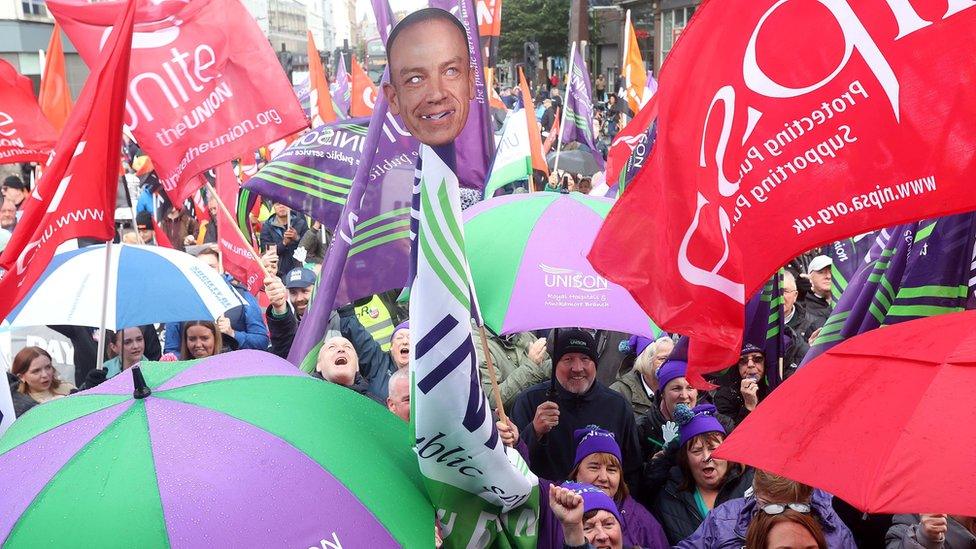
- Published21 September 2023
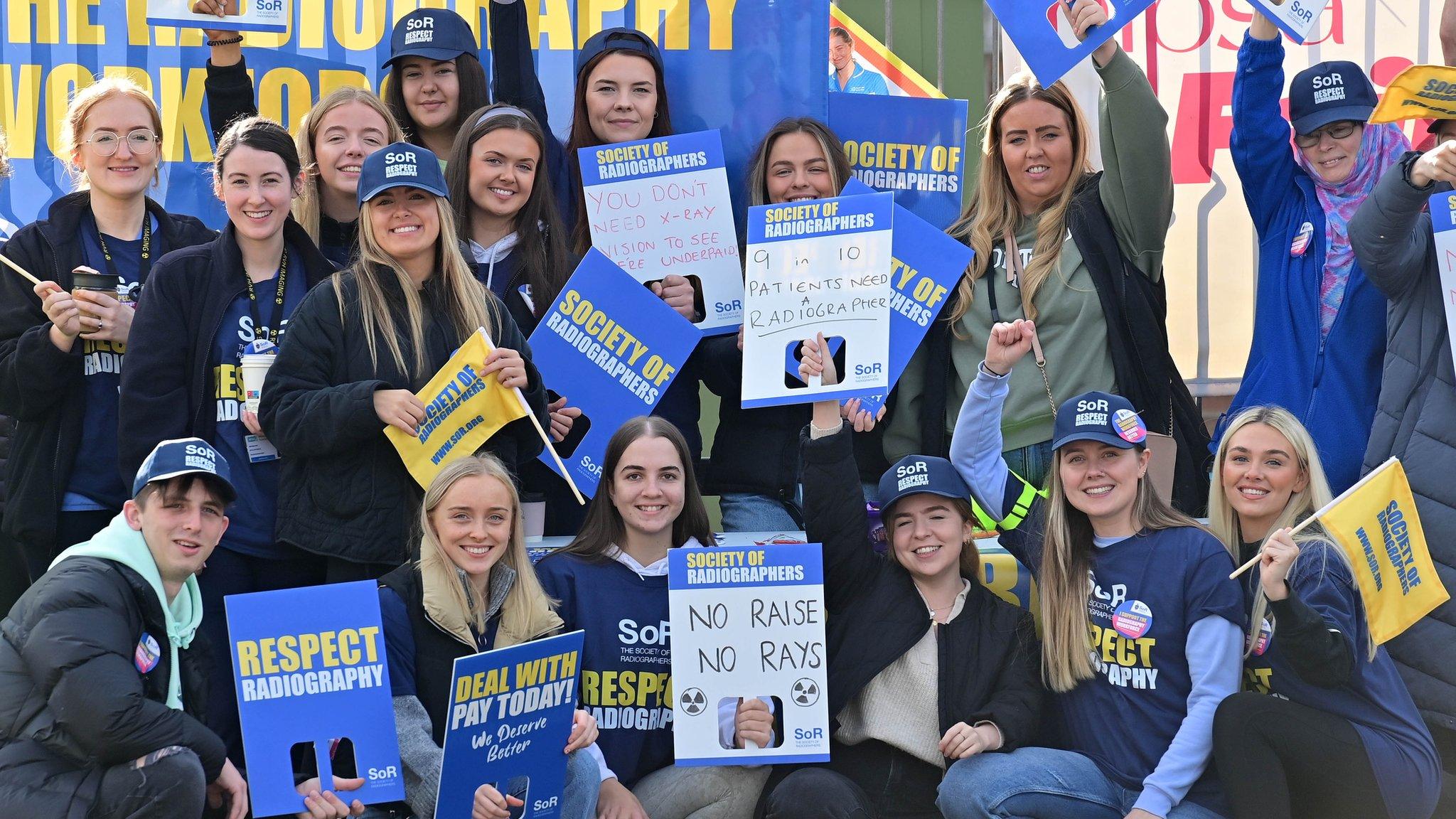
- Published19 December 2023
